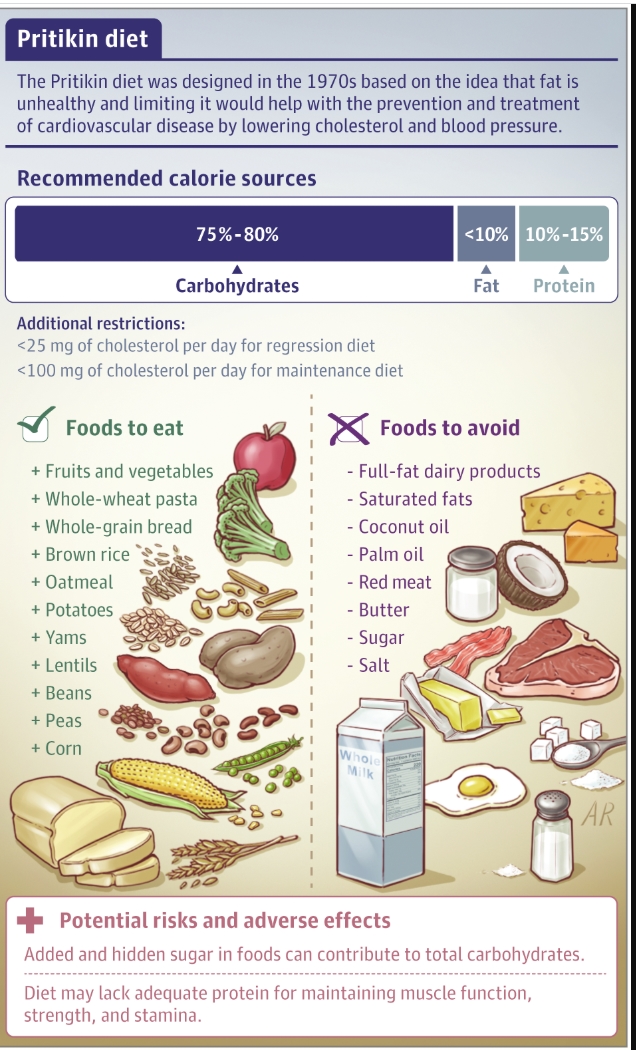The Pritikin Diet
Zhaoping Li JAMA. 2020;323(11):1104.
The Pritikin diet is a diet low in fats and high in complex carbohydrates.
The Pritikin diet was developed by Nathan Pritikin, an engineer, as part of a lifestyle regimen for health at a retreat in southern California. He wrote a diet book in 1979 and his name continues to be associated with low-fat dieting. The Pritikin diet consists of less than 10% fat, 10% to 15% protein, and 75% to 80% mainly complex carbohydrates, along with less than 25 mg per day (regression diet) or less than 100 mg per day (maintenance diet) of cholesterol.
Medical Use of the Pritikin Diet
The Pritikin diet was first designed for prevention and treatment of cardiovascular disease by lowering cholesterol and blood pressure. It has also been promoted as a weight-loss diet and to control blood glucose in patients with prediabetes and type 2 diabetes. Adhering to a low-fat diet leads to overall calorie reduction unless high-fat foods are supplemented with refined carbohydrates and sugar. If vegetables and legumes are eaten instead of refined carbohydrates, then low-fat calorie reduction occurs. The difficulty of this approach is that long-term adherence requires a willingness to avoid many foods and adhere to a strict regimen.
Does the Pritikin Diet Improve Health?
The Pritikin diet results in reduction in cholesterol by reducing not only cholesterol intake but also overall caloric intake by limiting all high-fat, calorie-dense foods. Currently, long-term data of the effect of the Pritikin diet on mortality, cardiovascular disease, cancer, and other chronic disease risks are lacking.
Individuals who wish to prevent and treat cardiovascular disease with a very structured and rigid approach may benefit from the Pritikin diet. For patients with prediabetes or type 2 diabetes, the limitation of fat and cholesterol may not be enough to control blood glucose. It is important to consume complex carbohydrates from whole grains, vegetables, and fruits and limit starches.
Potential Risks and Side Effects
The Pritikin diet was designed in the 1970s based on the belief that fat is unhealthy and is the major risk factor for overall health and heart disease. More recently, the adverse effect of added sugars in the diet has become evident. In the first 2 weeks of the diet, significant increases in urine production and fluid shifts may require adjustment of medications for hypertension, heart failure, and diabetes. It is important to consult with a physician before trying the Pritikin diet and to change your diet under the supervision of a physician and a registered dietitian.














